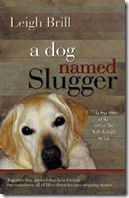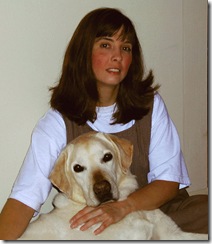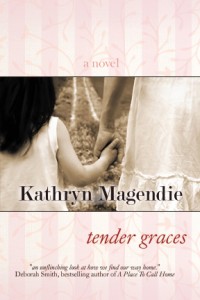Is the Novelist Work Not Valued, or Under Valued?
(Originally posted on Kat’s blog, at http://bit.ly/hMskPr)

Kat Magendie is a poet, novelist and Co-Publish of The Rose and Thorn literary magazine. She’s written three novels published by Bell Bridge, with a fourth on the way. Her TENDER GRACES was a 2010 bestseller in ebook at Kindle. Be sure to view her “Reading Nekkid” video at the end of this column.
And now, here’s Kat’s
Gentle Rant:

It’s not magic . . .
How much do you pay for a haircut? Let’s say your stylist cuts your hair in about 30ish minutes, and you return to have it re-cut every 4-10 weeks depending on you.
What about going out to dinner? Or to lunch? Or a Supreme Latte with extra supreme? Keeping in mind that once you eat/drink, it’s gone, and to have that experience again, you must buy more food/drink by opening up your wallet again and again and again.
Do you like manicures/pedicures? Do you like massages? Do you have a personal trainer? Is there something you collect?
And of all those things, and the et ceteras not mentioned, that you purchase and enjoy, do you ever expect to get them for free, or for the Service Provider to do their work for deep discounts because, just because?
 Of course you don’t.
Of course you don’t.
So why is it when authors talk about money they feel uncomfortable, as if they are embarrassed to even consider the idea of making money from Their Craft?
Is a writer’s work not considered Work?
 A stylist cuts our hair and we shell out the money knowing that we’ll have to return to have it cut again and again and again for the same results we hope, but do we ask the stylist to give us a cut rate? Do we ask the stylist to cut our hair for free? We’d not dream of doing that—because we Value the Service.
A stylist cuts our hair and we shell out the money knowing that we’ll have to return to have it cut again and again and again for the same results we hope, but do we ask the stylist to give us a cut rate? Do we ask the stylist to cut our hair for free? We’d not dream of doing that—because we Value the Service.
Somehow being a novelist isn’t Valued as a Service. You can buy a book from Amazon, or your  favorite bookseller, or an e-reader, (and many times at discounts), and you
favorite bookseller, or an e-reader, (and many times at discounts), and you
can enjoy that book and the feeling it gives you as many times as you want. You can lend your book (and one day, or now, e-reader books if I understand right) to a friend or relative and the author receives no royalty on that.
You can sell your book to someone and the author receives no royalty on that. The author receives his/her one-time royalty when a book is purchased and that one-time royalty is a very small percentage of what the book sells for. Very small. On e-readers, authors make a bit more percentage because over-head costs aren’t as great.
But what if in some alternate universe an author made most every dime of their book’s cost, which they never would by the way, are they somehow unworthy of it?
An author takes months (some longer) writing their book, then they must rewrite and rewrite, then they may go through rejection and uncertainty, then when they have that contract, their work is not done—more editing, more waiting, more stress. When the book is published, their work begins again: marketing, promotion, personal events, etc etc etc—and many things the author pays for out of their own pockets. Then they must then create more work, and the cycle begins again.
Through all of this, the author does not know if his/her book will be loved or hated or ignored or somewhere in between; he she does not know if it will sell well or will not sell well.
It won’t matter how hard the author worked, how much money he/she spent, he/she never knows what his/her paycheck will be. And, all the while, he/she must cringe in a corner while people tell him/her that they don’t want to spend money on books, or they want to spend very little money on books, and why should they have to spend money on books?
Anyone who goes into the Novelist business to make money should not go into the novelist business. There are simply too many unknowns. There is a lot of work, a lot of stress, a lot of rejection, and there’s a lot of feeling that your work is Not Of Value—imagine going to work every day and doing the best danged job you can and your boss quibbles with you over your salary and makes you feel as if you should be giving your work away for free or whatever he decides that day to pay you based on whatever he’s feeling that day about you compared to some other worker, because your work is Not Valued.
In matters of art and the heart, it’s hard to place monetary values, but frankly, we have to. Novelists have to make a living, too, and for the Novelist to feel guilty for hoping his/her works sells so that he/she can pay the bills or contribute to the household makes this business seem as if it’s more a Hobby than Real Live Work.
Is it because unlike the stylist or the restaurant worker or the oil tycoon or the actor/actress or the football player or the ice cream man we can do our work in our pajamas tucked in our little houses? You can’t see us working? It looks like lots-o-fun? It’s “easy” or “anyone can do it” – well, even the person who digs a hole gets a paycheck, and just about all of us can dig a hole, right?
What is it that separates the Novelist’s work from everyone else’s work? What is it about matters of art and the heart that makes the Work not valued?
Or is it because the writer, the novelist, does not teach people to value his/her work? Did we start it all by being apologetic about what we do or for wanting our work to Sell like a Product.
Do we not value our own work? Is it because many times we readily admit we’d do it all for free because we love it so much? It’s all we ever wanted to do? We are begging someone anyone to just read our work and love us, please please please just love us?
What do you think?
Kat creates wonderfully fun videos! Take a look!
 Leigh Brill’s funny, insightful, poignant memoir about her struggles with cerebral palsy and how a trained service dog named Slugger transformed her life continues to get absolute glowing reviews at Amazon.com, where it has spent the last few weeks at No. 1 in the Kindle bestseller list sub-categories for both “Dogs” and also in women’s biographies.
Leigh Brill’s funny, insightful, poignant memoir about her struggles with cerebral palsy and how a trained service dog named Slugger transformed her life continues to get absolute glowing reviews at Amazon.com, where it has spent the last few weeks at No. 1 in the Kindle bestseller list sub-categories for both “Dogs” and also in women’s biographies.









































